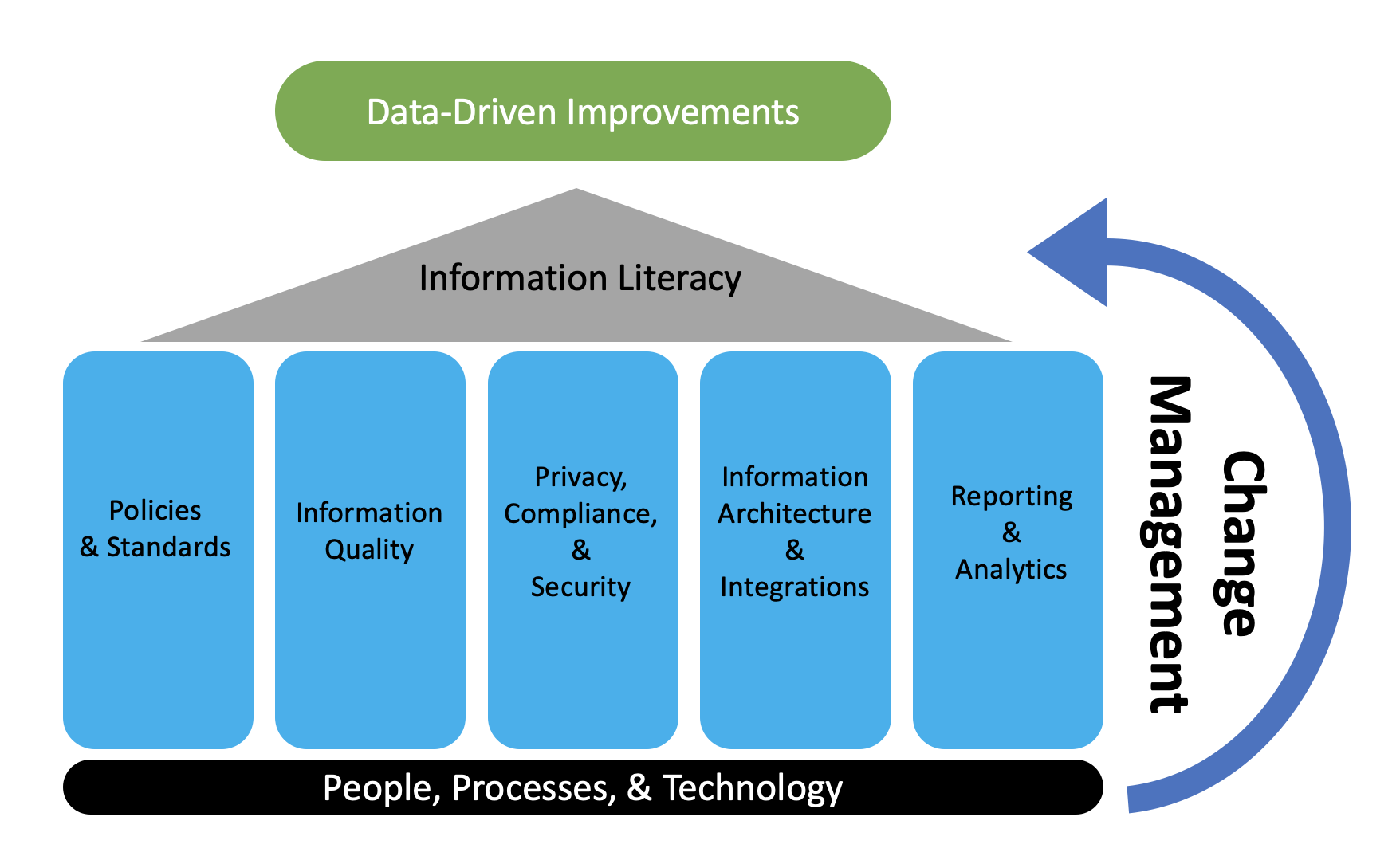Data Governance and Workday
The purpose of the UA’s Data Governance program is to establish and maintain university-wide data-related standards to ease, widen, and accelerate data use while applying appropriate controls to protect data assets.
Starting with combined efforts of the Workday project, data governance will help UA to manage its data as a valuable asset.
UA's Data Governance Framework

Benefits of Data Governance
Data governance formalizes and applies best practices so that this knowledge can be shared, standardized, and leveraged. Effective data governance is a shared responsibility between business functions, information technology, and everyone who interacts with data.
While many activities within the Workday project have end dates, data governance is an ongoing program being adopted by UA and will continue after Catalyst is complete. Benefits of ongoing data governance include:
- Greater transparency within any data-related activities.
- Increase in value of an organization’s data.
- Improved monitoring and tracking mechanisms for Data Quality and other data-related activities.
- Help with instituting better training and educational practices around the management of data assets.
- Better resolution of past and current data issues.
- More accurate procedures around regulation and compliance activities.
- Improved data security and reduced organizational risk.
Roles & Responsibilities
The University of Akron has identified four roles in relation to how specific populations of the UA community interact with data assets. Those roles are:
Data Owner
The individual or group who has accountability and authority to make decisions about a specific set of data. The Data Owner is responsible for the function or functions that collect and use the information, determines the levels of protection for the information, makes decisions on appropriate use of the information, and determines the appropriate classification of the information. This role generally falls to a functional administrative or academic area, such as the Registrar, Human Resources, or the offices of the CFO and Provost.
Data Steward
The person who is identified by the Data Owner to act, and to approve or deny access to data, on behalf of the Data Owner.
Data Custodian
The persons or unit responsible for implementing controls the Data Owner identifies. This role often includes Information Technology Services or departmental technology support.
Data User
Any person who interacts with the data. This includes people or programs that create, update, read, or delete information.
